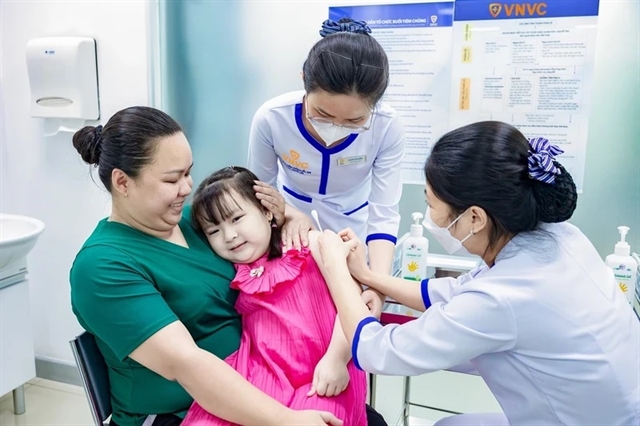Dengue fever, a mosquito-borne viral infection, has become one of the fastest-spreading tropical diseases, significantly impacting global public health. Rapid urban growth, climate change, and increased travel have all accelerated the disease’s spread, leading the WHO to list dengue as a top ten global health threat.
Dr Mattias Larsson*
In an article on July 3, 2023, I wrote about a foreign family where all four members were infected by dengue at the same time. The children were admitted due to fatigue and haemorrhagic fever with bleedings in the nose, gum and skin due to decreasing platelets.
They were treated with IV fluid replacement until they could drink enough themselves. By monitoring the progress and seeing to that they had had enough fluid replacement, the worst symptoms could be prevented.
Dengue fever, a mosquito-borne viral infection, has become one of the fastest-spreading tropical diseases, significantly impacting global public health. Rapid urban growth, climate change, and increased travel have all accelerated the disease’s spread, leading the WHO to list dengue as a top ten global health threat.
The World Health Organisation (WHO) estimates that 100-400 million dengue infections occur worldwide each year. Dengue is caused by four virus serotypes (DENV-1, DENV-2, DENV-3, and DENV-4), transmitted primarily by Aedes aegypti mosquitoes.
Immunity to dengue is complex, and partial immunity to one serotype can lead to severe illness upon exposure to another serotype, a phenomenon called antibody-dependent enhancement (ADE). The second infection with dengue is commonly the most severe and may lead to haemorrhagic fever and dengue shock, a life-threatening condition.
Việt Nam is one of the highly endemic countries highly vulnerable to dengue epidemics with over 360,000 reported dengue cases and approximately 150 deaths in 2022. along with rapid urbanisation, creates ideal conditions for dengue. Tropical and sub-tropical climate, urbanisation and high population density have intensified transmission, contributing to severe outbreaks, with cases spiking from May to November during the rainy season. each year. Aedes aegypti mosquitoes thrive in urban settings, making large cities like Hà Nội and HCM City prime areas for dengue transmission.

A vaccine can help prevent all four dengue viruses. Photo nhandan.vn
Now we can introduce Qdenga, a tetravalent live attenuated dengue vaccine that provides immunity against all four dengue virus serotypes! This is crucial for Việt Nam as all four serotypes circulate often simultaneously. This broad protection lowers the risk of ADE, offering more complete immunity. Approved for use in many countries including the European Union, Japan and Thailand, now also in Việt Nam, Qdenga can be administered from the age of 4 years and regardless of prior dengue exposure.
This distinguishes it from earlier vaccines, which were only recommended for individuals who had previously been infected with dengue due to safety concerns for those without prior exposure. Qdenga is given in two doses with three months between. A few people may experience side effects, the most common being pain and rash at the injection site, headache, muscle pain, weakness and a light fever.
Qdenga’s efficacy for both dengue-exposed and dengue-naïve individuals makes it suitable for populations new to urban centres like Hà Nội and HCM City. As migration from other countries as well as rural to urban areas increases, the number of dengue-naïve individuals in these cities grows, increasing the risk for epidemics. Vaccinating these groups helps prevent outbreaks and reduces the likelihood of severe cases.
For those of you that recently moved to Việt Nam from non-dengue endemic areas as the temperate regions as Europe and North America have an enhanced benefit from Qdenga vaccination. The vaccine will prevent first and second, usually more severe, infections.
FMP, who was early with Qdenga vaccination in Việt Nam for the diplomatic community, provides Qdenga vaccination for all people above 4 years of age in our clinics in Hà Nội, HCMC and Đà Nẵng for competitive prices. Welcome! — Family Medical Practice

Dr Mattias Larsson. Photo courtesy of Family Medical Practice
*Dr Mattias Larsson is a paediatric doctor at Family Medical Practice and associate professor at Karolinska Institute and has a long experience in research on infectious diseases. He has worked with the Oxford University Clinical Research Unit and the Ministry of Health of Việt Nam. He is fluent in English, Swedish, Vietnamese, German and speaks some Spanish.
Family Medical Practice - FMP Healthcare Group operates medical centres in major cities including HCM City, Hà Nội and Đà Nẵng, offering consultations with international doctors, check-up centres and emergency ambulance services.
In HCM City, we have clinics in Districts 1, 2, and 7, along with the Care 1 - Executive Health Check-Up Centre and internationally accredited *9999 emergency ambulance services.